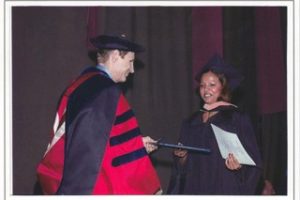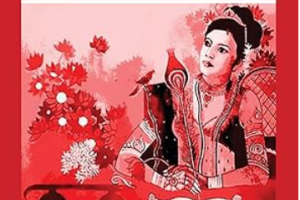Israeli Prime Minister Benjamin Netanyahu has called on his centrist rival Benny Gantz to form a unity government, after the country’s second election in a year ended in deadlock.
Local media say both men’s parties failed to win enough votes on Tuesday to build a coalition with a majority.
Mr Gantz’s party appeared to rebuff the prime minister’s proposal.
He has previously ruled out joining a coalition led by Mr Netanyahu, who faces possible corruption charges.
At a ceremony in Jerusalem on Thursday, President Reuven Rivlin welcomed the prime minister’s “important call”.
Mr Rivlin will hold consultations with party representatives before nominating a candidate whom he believes has the best chance of forming a government.
What was the outcome of the election?
Official results have been slow to be released by the Central Election Committee, with only 68.1% of votes counted by 10:40 (07:40 GMT) on Thursday.
Mr Gantz’s Blue and White alliance was 0.78% ahead of Mr Netanyahu’s right-wing Likud party. The Joint List, an alliance of Arab parties, was in third place, the ultra-Orthodox Shas party in fourth, and the nationalist Yisrael Beiteinu party in fifth.
The CEC tally does not say how this translates into seats in the 120-seat Knesset (parliament) but Israeli media reported that Blue and White was on track to win 33 seats, two more than Likud.
A centre-left bloc led by Mr Gantz was projected to control 57 seats and a bloc of right-wing and religious parties allied to Mr Netanyahu looked set to have 55.
Neither would therefore be able to form a majority coalition without support from Yisrael Beiteinu, whose leader Avigdor Lieberman has called for a “broad, liberal” unity government.
Mr Lieberman prevented Mr Netanyahu from forming a majority coalition after the last election in April because he refused to back down in a longstanding dispute with religious parties over exempting ultra-Orthodox men from military service.
How have the party leaders responded?
On Wednesday night, officials said the prime minister had cancelled a planned trip to New York next week to address the United Nations General Assembly.
In a video released on Thursday, Mr Netanyahu said that, “to his regret”, the election results showed he would not be able to establish a right-wing government.
“There is no choice but to establish a broad government, as broad as possible, composed of all those elements to whom the state of Israel is dear,” he added.
“Benny, we must set up a unity government today. The people expect the two of us to show responsibility and work for co-operation. That is why I call on you, Benny. Let’s meet today, at any hour, at any time, to put this in motion.”
“We must not, and we have no reason to get to third elections – I’m against it.”
The BBC’s Tom Bateman in Jerusalem says the move is characteristic of Mr Netanyahu – attempting to grab the initiative amid the political deadlock, while Israel’s president has to task one party leader with trying to form a coalition.
Mr Gantz was expected to deliver a statement later on Thursday. But one source in Blue and White told Israeli media that they saw Mr Netanyahu’s offer as a PR stunt.
The source added that the party would not join forces with Likud while Mr Netanyahu remained leader due to the charges of bribery, fraud and breach of trust he faces in connection with three corruption cases, pending a final hearing next month. He denies any wrongdoing.
In a speech to supporters at a post-election rally in Tel Aviv on Tuesday night, Mr Gantz said he wanted to form a “broad unity government that will express the will of the people” and “start the journey of repairing Israeli society”.






















